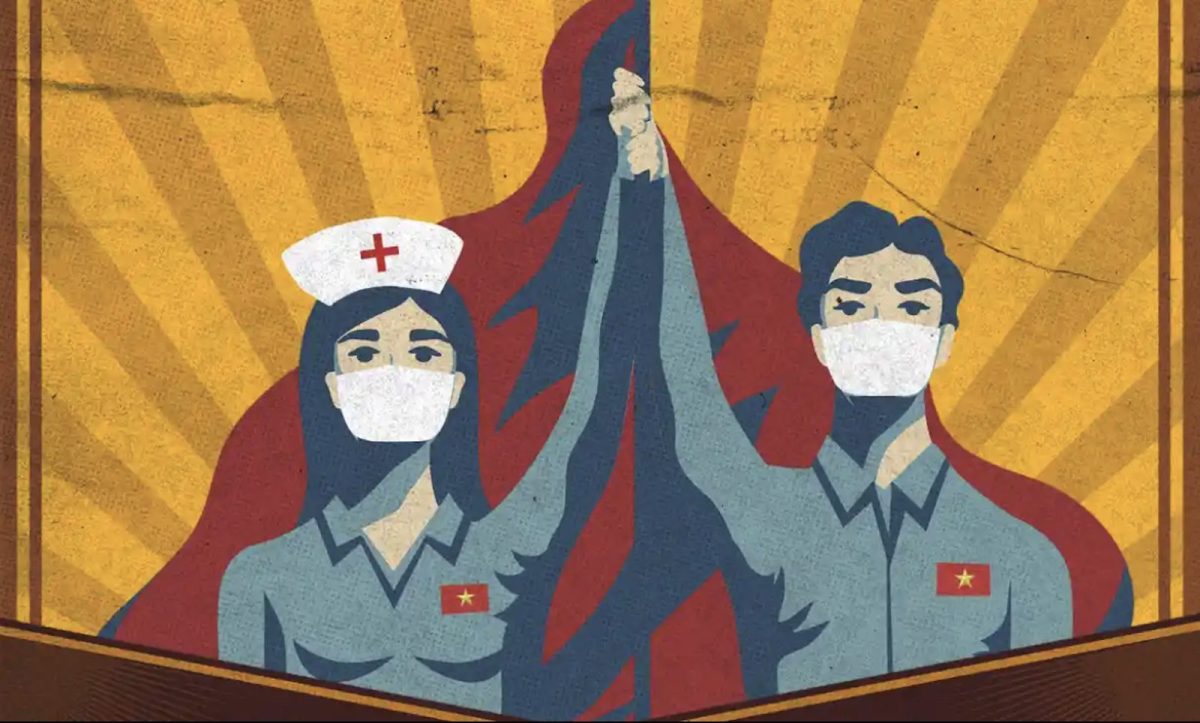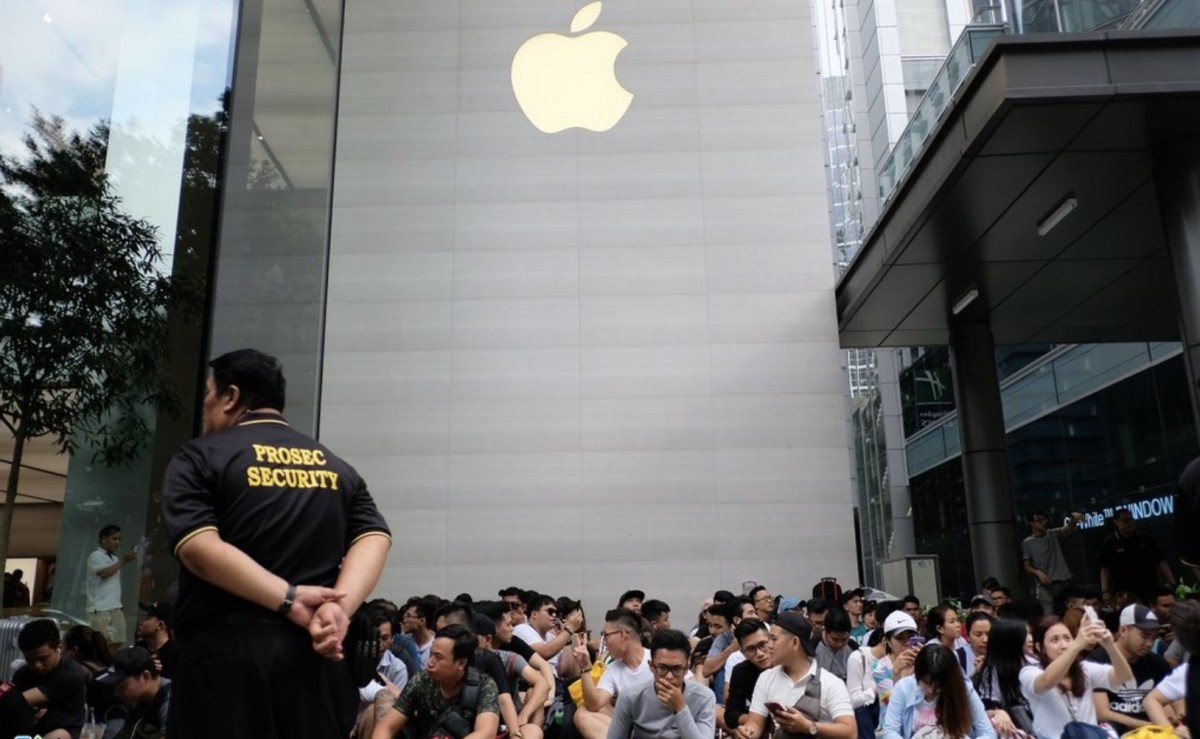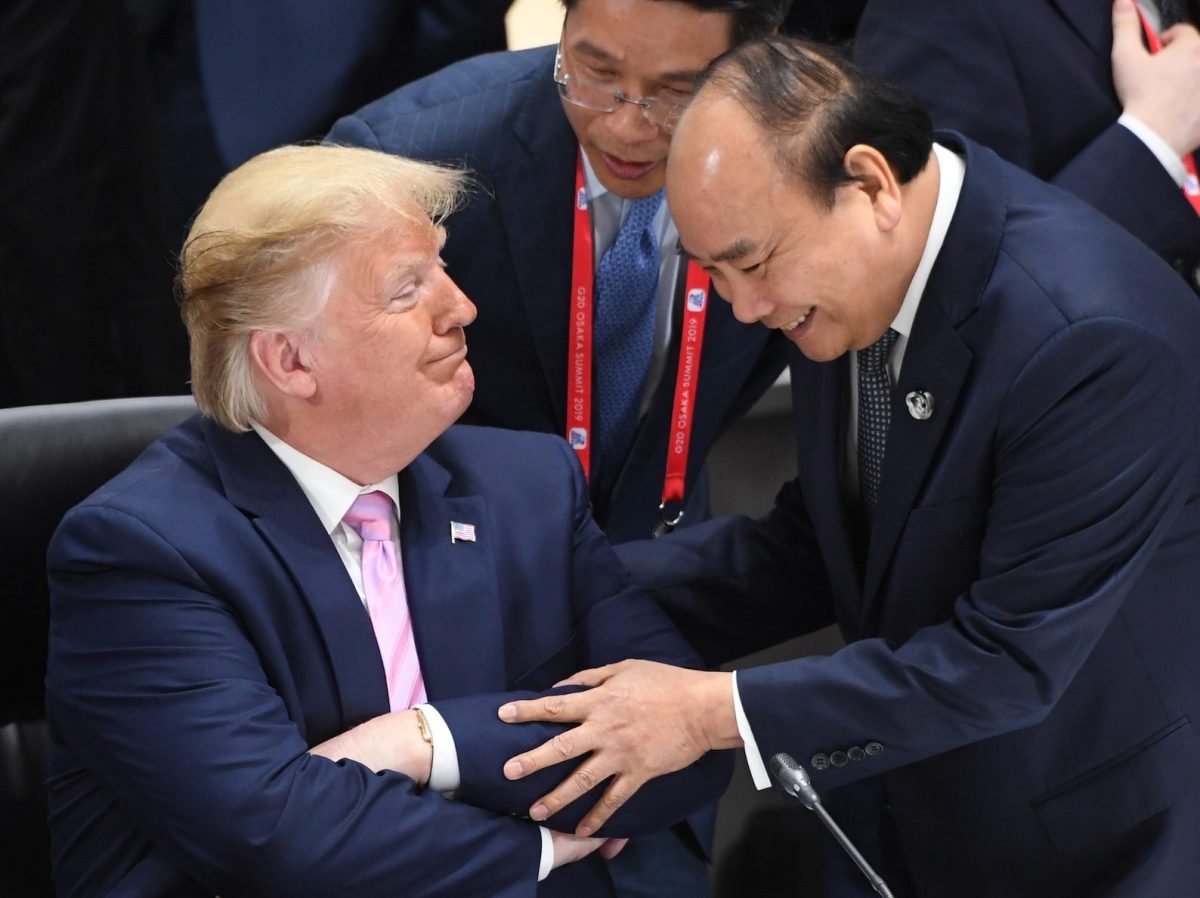Vietnam will be one of the few nations worldwide to record positive economic growth in 2020 despite a global collapse in trade, travel, and investment caused by the Covid-19 pandemic.
The International Monetary Fund predicted this week that Vietnam’s gross domestic product (GDP) will grow by 2.4% in 2020, following a 2.6% year-over-year economic boost in the third quarter. There have been several important push factors behind Vietnam’s relative economic success.
In June, Vietnam ratified a free-trade agreement with the European Union, representing only the second Southeast Asian state to do so. Last week, Hanoi played host to a regional summit where the pen was put to paper on the Regional Comprehensive Economic Partnership, the world’s largest, Asia-centric trade pact which Vietnam is now a member.
Vietnam’s global trade is already brisk. Exports grew by 4.1% during the first three quarters of the year, compared with the same period last year, whilst its exports to the United States rose by 23% over the same period, according to the Ministry of Industry and Trade.
Vietnam’s relative economic success is somewhat surprising considering that the Communist Party-led government has consistently maintained that it won’t put economic recovery ahead of public health.
To date, Vietnam has recorded less than 1,300 Covid-19 cases and 35 deaths. Authorities responded quickly and efficiently when a second-wave broke out in the coastal city of Danang in late July, following a relaxing of strict lockdown restrictions imposed in February.
“We have done a good job in containing the virus, paving the way for reviving economic activities,” Prime Minister Nguyen Xuan Phuc said before the National Assembly, the country’s rubber-stamp lawmaking body, in mid-October.
“This proves our efforts have paid off given the fact that many economies in Southeast Asia have attained negative growth due to the impact of the novel coronavirus pandemic,” he also said last month.
Vietnam is not only the envy of its Covid-hit Southeast Asian neighbors, all of which will face severe economic contractions this year and only marginal recoveries in 2021, but it has also earned international plaudits for its resilience.
The Lowy Institute’s Asia Power Index published last month found that Vietnam’s international image was one of the Asia-Pacific’s best improvers this year, with its score on diplomatic influence gaining six percentage points.
“The country registered the largest improvement in relative power of any [Asian] country – gaining 1.3 points in 2020,” the report stated.
The Lowy Institute also found earlier this year that Vietnam had the third-highest improvement in international reputation because of its handling of the Covid-19 pandemic, trailing only Taiwan and New Zealand.
The uptick in Vietnam’s international image is concomitant with a noticeable positive shift in media coverage of the Communist Party’s governance, drowning out previous reports that focused on its persistent assaults on journalists, activists and social media users.
In an article published by Foreign Policy in May, the former Vietnam-based journalist Bill Hayton noted that one reason why “Vietnam’s disease control mechanisms have been so effective, and the reason why they are unlikely to be copied, is that they are the same mechanisms that facilitate and protect the country’s one-party rule.”
Reuters reported this week that Hanoi is once again threatening to close down Facebook in the country due to its apparent unwillingness to censor enough content critical of the Communist Party, despite Facebook’s promises earlier this year to do so.

In some ways, Vietnam had advantages over its Southeast Asian neighbors. Much like China, its GDP growth is driven by manufacturing and exports, which are easier to maintain during a pandemic than sectors reliant on domestic consumption.
The service sector accounted for 45% of Vietnam’s GDP last year but grew by just 3.2% in the first quarter of 2020, down from 6.5% in the same period last year.
Vietnam’s economy is also less dependent than other Southeast Asian states on tourism, which accounted for 9% of its GDP in 2018, compared with 32% for Cambodia and 20% for Thailand. It has thus faced less pressure due to the collapse of international travel.
Vietnam also went into 2020 on the back of two years of robust foreign direct investment flows after the US-China trade war prompted many foreign manufacturers to move their operations to Vietnam, where trade links to the US are more stable and less tariffed.
However, the IMF in its report this week noted that Hanoi’s “decisive steps to contain the health and economic fallout from Covid-19” were a primary reason for positive economic growth this year, a recognition of the Party’s quick and competent response, which has also been conducted with uncharacteristic transparency.
The IMF expects that recovery to carry over strongly into 2021 with the growth of 6.5% “as normalization of domestic and foreign economic activity continues,” it stated in its report.
In the first nine months of the year, Vietnam recorded $21.2 billion in new foreign investment projects and overseas capital injections, equivalent to around 80% of the investment it received over the same period last year, a bumper year for investment.
Many of the investments made this year won’t begin operations until 2021 or later, which also points to a healthy economic recovery.
Almost one-fifth of the entire foreign capital investment this year came from a $4 billion investment from Singapore’s Delta Offshore Energy for a new liquefied natural gas-fired power plant in Bac Lieu province, which won’t be completed until 2024.
As part of Hanoi’s ambition to shift from low-value-added manufacturing to higher-end tech production, Vietnam has also seen this year key investment projects from international electronics firms.
Japan’s Furukawa Automotive Systems invested in a new plant to manufacture electric wires for cars last month, while in September Apple’s local partner invested $1 billion in three new manufacturing projects.

Earlier in the year, Apple announced that its new line of over-ear headphones will be produced in Vietnam.
Smartphones, electronics, and computers topped Vietnam’s exports in value and share in the first six months of the year, according to a recent briefing from Dezan Shira & Associates. Electronics exports to the US were up more than a quarter in the first nine months compared with the same period in 2019.
A political shift in the US could provide more good economic news for Vietnam. Outgoing US President Donald Trump has maintained mostly cordial relations with Vietnam, though unpredictable outbursts and threats have put Hanoi on a back foot.
Trump’s threats to impose sanctions on Vietnam because of its large trade surplus with the US caught many in Hanoi off-guard. To ease those tensions, the Vietnamese government has signed several less-than-economically-prudent deals to import more US goods.
Just months after handpicking Hanoi to be the host of his peace-talks with North Korean leader Kim Jong-un in early 2019, Trump derided Vietnam as the “worst abuser” of US trade. In October, the US opened an investigation into possible Vietnamese currency manipulation.
Hanoi will likely find a more reliable and dependable partner in President-elect Joe Biden, who is not expected to be as obsessed as Trump with reducing Vietnam’s trade surplus with the US.

And while a Biden administration is expected to put a higher priority on human rights issues, most analysts expect Vietnam to get a relative pass from Washington, just as it did when Biden was vice president under the Barack Obama administration.
Whether there is continuity or change to both US-Vietnam relations and Vietnam’s domestic politics is a matter of intrigue, but what is certain is that the country’s economy will likely again be the envy of the region in 2021.
Source: asiatimes.com





